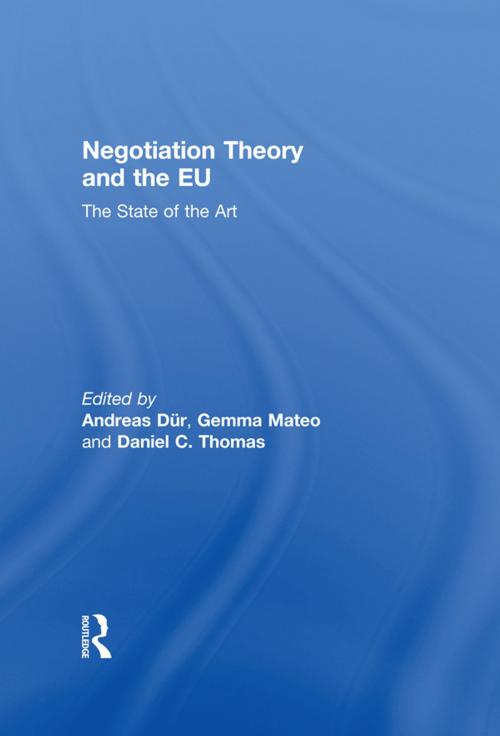Negotiation Theory and the EU
The State of the Art
Nonfiction, Social & Cultural Studies, Political Science, Politics, Practical Politics, International, International Relations| Author: | ISBN: | 9781317983057 | |
| Publisher: | Taylor and Francis | Publication: | October 31, 2013 |
| Imprint: | Routledge | Language: | English |
| Author: | |
| ISBN: | 9781317983057 |
| Publisher: | Taylor and Francis |
| Publication: | October 31, 2013 |
| Imprint: | Routledge |
| Language: | English |
Negotiations are central to the ethos and functioning of the European Union, yet the dynamics of EU negotiations have received far too little systematic scholarly attention. This volume offers a thematic and forward-looking survey of cutting-edge research on EU negotiation dynamics, identifying findings to date and setting an empirical and methodological agenda for future research.
The chapters by leading international experts address a wide range of critical questions in this area, including: What factors influence negotiation behaviour and outcomes in the EU? How can we explain variation in the choice of negotiation styles? When do actors engage in arguing or bargaining? What are the determinants of bargaining power? What are the institutional foundations of EU negotiations? And what role does the presidency play in EU negotiations? The volume also discusses how the findings of the multi-disciplinary field of ‘negotiation studies’ can inform research on negotiation dynamics in the EU.
The volume will be of great interest to established scholars and advanced students of international relations, European integration and governance, and negotiation analysis.
This book was based on a special issue of Journal of European Public Policy.
Negotiations are central to the ethos and functioning of the European Union, yet the dynamics of EU negotiations have received far too little systematic scholarly attention. This volume offers a thematic and forward-looking survey of cutting-edge research on EU negotiation dynamics, identifying findings to date and setting an empirical and methodological agenda for future research.
The chapters by leading international experts address a wide range of critical questions in this area, including: What factors influence negotiation behaviour and outcomes in the EU? How can we explain variation in the choice of negotiation styles? When do actors engage in arguing or bargaining? What are the determinants of bargaining power? What are the institutional foundations of EU negotiations? And what role does the presidency play in EU negotiations? The volume also discusses how the findings of the multi-disciplinary field of ‘negotiation studies’ can inform research on negotiation dynamics in the EU.
The volume will be of great interest to established scholars and advanced students of international relations, European integration and governance, and negotiation analysis.
This book was based on a special issue of Journal of European Public Policy.















